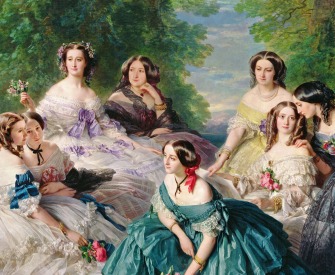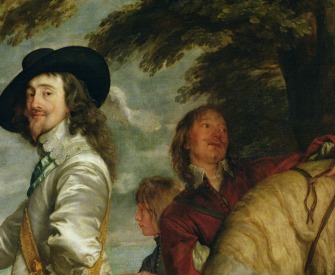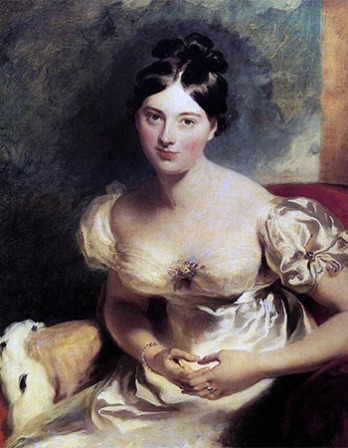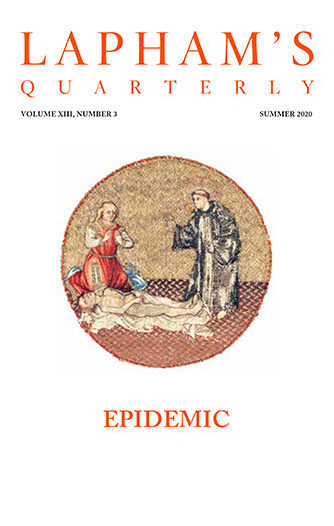The seeds of civilization are in every culture, but it is city life that brings them to fruition.
—Susanne K. Langer, 1962Assaying a Crowd
Balzac gives an introduction to the world of necessary superfluities.
During the course of his first aimless walk across the boulevards and along the Rue de la Paix, Lucien, like all newcomers, was much more interested in things than in people.
In Paris the scale of everything is the first thing that strikes one: the luxury of the shops, the height of the houses, the affluence of the carriages, the contrast, everywhere seen, between great wealth and extreme poverty. Astonished at that crowd, in which he himself was a stranger, that man of inspiration felt himself immensely diminished. People who have a measure of local celebrity in a provincial town, and who at every step encounter some proof of their own importance, can never reconcile themselves to this sudden and total extinction of the basis of their self-esteem. To be somebody in one’s own town and nobody in Paris—these are two conditions that call for gradual adjustment, and those who pass too abruptly from the one state to the other fall into a kind of annihilation. For a young poet who had always found a response to all his moods, a companion to listen to all his ideas, a friend in whom to confide his smallest experiences, Paris could only be a terrible desert. Lucien had not yet been to collect his best blue suit, so that he was acutely conscious of the shabbiness (to say the least of it) of his clothes, as he once more approached his lover Mme de Bargeton’s door, at the time at which she was expected back; here he found Baron de Châtelet, who carried them both off to dinner at the Rocher de Cancale. Lucien was stunned by the whirl of Paris and could say nothing to Mme de Bargeton—for there were three in the cab—but he squeezed her hand, and she responded in friendly fashion to all the thoughts that he expressed in this way. After dinner Châtelet conducted his two guests to the Vaudeville.
It was on this memorable evening that Lucien secretly repudiated a number of provincial ideas of life. The horizon had widened, society took on new proportions. The proximity of so many pretty women of Paris, so elegantly and daintily dressed, made him notice how dowdy Mme de Bargeton’s clothes were in comparison, although she had done her best. Neither the material, the cut, nor the colors were fashionable. The hairstyle that had made such an impression in Angoulême here looked in strikingly bad taste in comparison with the delicious inventions that he saw on all sides.
“Will she always look like this?” he wondered, not knowing that the day had been spent in planning a transformation.
In the provinces there is no question of choice or comparison; one is used to seeing faces, and they come to seem beautiful through familiarity. Transported to Paris, a woman who passes for pretty in the country will not be worth a glance, for she is only beautiful by the application of the proverb, “In the kingdom of the blind, the one-eyed man is king.” Lucien’s eyes made the same comparison that Mme de Bargeton’s had made on the previous evening between himself and Châtelet.
On her side Mme de Bargeton gave way to strange reflections on the subject of her lover. For all his striking beauty, the poor poet cut a sorry figure. His coat too short at the cuffs; his country gloves and his waistcoat that was too small for him made him look prodigiously silly beside the young men in the balcony. Mme de Bargeton thought he looked positively pitiable. Although the vulgar will not have it that sentiments can change so suddenly, it is nevertheless a fact that two lovers often separate more quickly than they were drawn together. In Mme de Bargeton and Lucien, a secret process of disillusionment was at work, and the cause was Paris. The poet’s view of life had widened, just as society had taken on a new aspect for Mme de Bargeton. For both of them, some small accident would be enough to sever the bonds that united them. Nor was that blow, so terrible for Lucien, long delayed.
Mme de Bargeton set the poet down at his hotel, and M. du Châtelet accompanied her home.
Next day Mme de Bargeton made an attempt to dress herself suitably for calling on her cousin, Mme d’Espard. It was a trifle cold, and in her old ragbag from Angoulême, she could find nothing better than a certain green velvet dress, trimmed fantastically enough. Lucien, for his part, felt that it was time to go and fetch his blue suit, for he had taken a great dislike to his tight jacket and was anxious always to look well-dressed, thinking that he might meet Mme d’Espard unexpectedly, or be sent for to visit her at short notice. He got into a cab in order to fetch his parcel immediately. Two hours later he had spent three or four francs, which gave him cause to reflect on the financial proportions of Paris life. Having dressed to the best of his ability, he set out for the Rue Neuve-de-Luxembourg, where he encountered Mme de Bargeton’s servant Gentil on the doorstep, accompanied by a footman in full feather.
“I was just on my way to you, sir. Madame has just given me this little note for you,” said Gentil, who, accustomed to the more homely ways of the provinces, was innocent of the Parisian formula of respect. The footman mistook the poet for a servant.
Lucien unsealed the note, in which he read that Mme de Bargeton was spending the day with the Marquise d’Espard and going to the opera in the evening, but she told Lucien to meet her there—her cousin had kindly allowed her to offer a place in her box to a young poet, for whom the Marquise d’Espard was delighted to be able to procure that pleasure.
He jumped for joy and thought only of how to pass pleasurably the time that separated him from that happy evening. He dashed off in the direction of the Tuileries with the idea of strolling there until it should be time to dine at Véry’s. There was Lucien, bounding and prancing, walking on air, making his way to the Terrasse des Feullants to watch the fashionable crowd, the lovely women with their admirers, men of fashion, walking in couples, arm in arm, greeting one another with glances as they passed. What a difference between this terrace and Beaulieu! The birds on this gilded perch were different indeed from those of Angoulême! Here was all the wealth of color, the exotic plumage of the Indes or America, compared with the gray colors of the birds of Europe. Lucien passed two hours of torture in the Tuileries: a violent revulsion overcame him as he examined himself. In the first place, among all these elegant young men, he did not see a single cutaway coat. The only cutaway coats he saw were worn by a few shabby old outcasts, a pensioner from the Marais, or an underclerk. Having thus made the discovery that there is a difference between morning and evening dress, that poet of violent emotions, of subtle perceptions, realized the ugliness of his costume, whose cut was old-fashioned, whose blue was the wrong shade, whose collar was beyond everything, and whose tails, through long wear, overlapped each other; the buttons were tarnished, there were fatal white lines along the creases. What was more, his waistcoat was too short and of grotesquely provincial cut. In order to hide it, he hastily buttoned up his coat. And finally, he noticed that only common people wore nankeen trousers. The better people all wore either exquisite fancy materials or immaculate white! What is more, all the trousers were worn with straps under the soles, while his scarcely came down to the heels of his boots, from which the trouser hems rolled back as if in violent antipathy. He was wearing a white cravat with embroidered ends; his sister, who had seen similar ones worn by M. du Hautoy and M. de Chandour, had made haste to copy them for her brother. Nobody, except a few elderly business men and one or two sedate civil servants, seemed to wear white cravats in the morning, but what was worse, there was a grocer’s errand boy with a basket on his head on the other side of the railings on the pavement of the Rue de Rivoli, about whose neck the young man from Angoulême noticed the two ends of a cravat, embroidered by the hands of some adored shopgirl. This sight stabbed Lucien’s breast, wounding that organ, as yet uncertainly defined, that is the seat of our feelings, toward which, ever since feelings have existed, men have always carried their hands, in any excess of joy or sorrow. Do not say that this is a childish narration. For the rich, to be sure, who have never known sufferings of this kind, such feelings must seem unbelievably petty, but the sufferings of the unfortunate are as deserving of our attention as the crises that shake the lives of the great and privileged ones of the earth. And is not the pain as great in the one as in the other? Suffering dignifies all things. And we only have to change the terms: for a suit, more or less good, let us substitute a ribbon, a decoration, a title. Have not these seemingly small things been the torment of brilliant lives? And besides, the question of dress is enormously important to those who wish to seem to have what in fact they have not, for it is often the best means of obtaining it later on. Lucien broke out into a cold sweat as he reflected that he was to appear that very evening in these clothes before the Marquise d’Espard, a relative of a First Gentleman of the Bedchamber, before a woman at whose house were gathered the most distinguished men in every field, the elite of the elite.
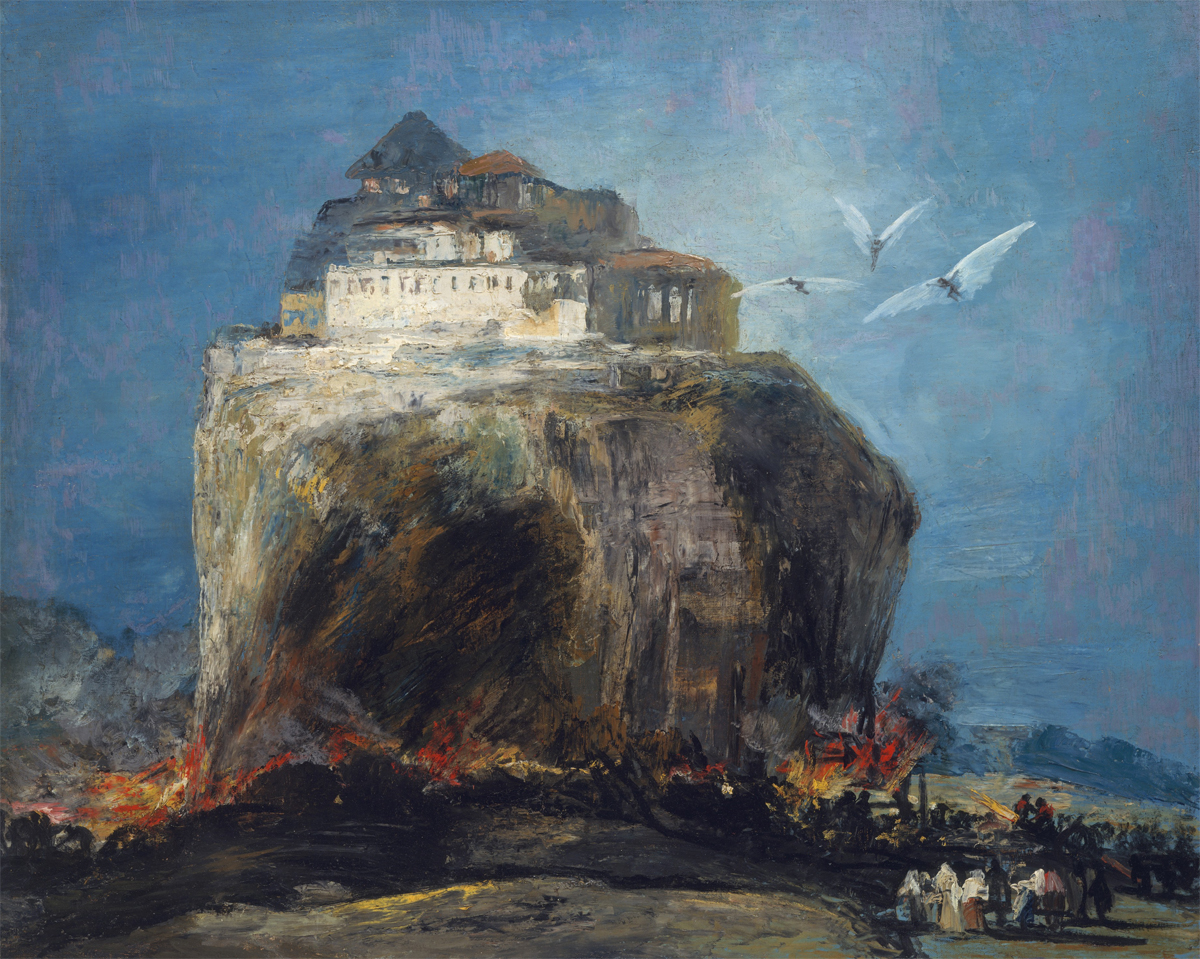
A City on a Rock, in the style of Goya, 19th century. The Metropolitan Museum of Art, H. O. Havemeyer Collection, Bequest of Mrs. H. O. Havemeyer, 1929.
“I look like the son of a chemist, like a shop assistant!” he said to himself, raging as he watched the elegant, the smart, the fashionable sons of the best families of the Faubourg Saint-Germain, who passed him. They all had a certain distinction of contour, a certain style, the same carriage, the same expression of face, and yet every one had selected a different setting to bring out his individuality to the best advantage. Each one had emphasized his good features by a kind of display that young men in Paris understand as well as women. All these elegant gentlemen wore the most marvelous gloves, while his were only fit for a policeman. One toyed with an exquisitely mounted cane; another wore a shirt with delicious gold cuff links. One, as he chatted with a woman, twisted an elegant riding crop. There were a few specks of mud on the full folds of his breeches, and from his clanking spurs and his tight-fitting jacket, it was evident that he was about to remount one of the two horses held by a diminutive tiger. Another drew out of a waistcoat pocket a watch no thicker than a five-franc piece and looked at the time with the air of a man who is either too early or too late for an appointment. As he noticed these charming trifles, whose very existence he had never even suspected, he became aware of a whole world of necessary superfluities, and he shuddered as he reflected that one must have enormous capital in order to play the part of a young man about town. The more he admired those young men, with their air of gay irresponsibility, the more he became conscious that he looked a stranger, like a man who has no idea where the road he is following leads to, who doesn’t know his way to the Palais-Royal when he is just beside it, and who asks the way to the Louvre from a passerby, who replies, “This is it.” Lucien realized that a great gulf divided him from this world, and he asked himself how he was ever going to cross it, for he was determined to be like these graceful and elegant young men of Paris. All these sons of the aristocracy greeted divinely dressed, divinely lovely women; Lucien would gladly have gone to the scaffold like Countess Koenigsmark’s page for a single kiss from one of them. In the background of his memory, Mme de Bargeton, beside these princesses, seemed like an old woman. He saw not a few of those women whose names will be remembered in the history of the nineteenth century, whose wit, whose beauty, and whose loves will be no less illustrious than are those of the queens of former days.

Honoré de Balzac
From Lost Illusions. Once referring to himself as “secretary of French society,” Balzac published roughly ninety novels and novellas that comprise La Comédie humaine, a portrait of France during the years 1815–1848 that introduces an estimated 2,472 named characters and 566 unnamed. Having stated that he wrote one third of Lost Illusions in eight days, he added, “I wrote fifteen hours a day…without taking anything but coffee.”
